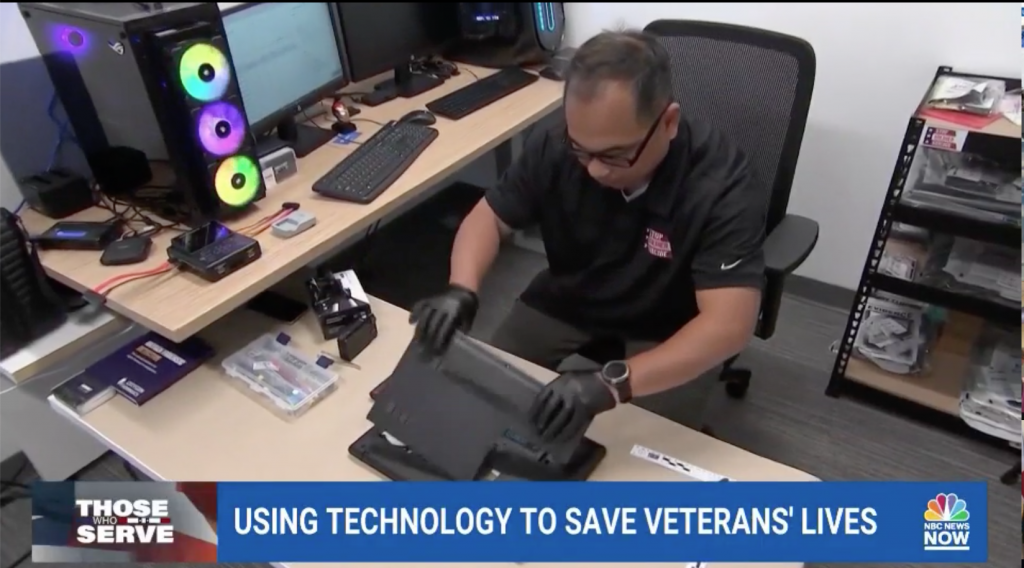
Dustin Millado, a forensic investigator, analyzes a soldier’s laptop after he committed suicide. Millado is working with Stop Soldier Suicide in a prevention program called Operation Black Box. (Source: NBC News)
Analysts Examine Phones, Laptops with ML to Detect Suicidal Signs
NBC News recently reported that a nonprofit working to prevent soldier suicides has employed a digital forensic expert to analyze the electronics of those who have taken their lives so they can better track the triggers for future prevention. The effort, the Black Box Project, has been underway since 2017, but the tools being used are becoming more advanced.
The group, Stop Soldier Suicide, decided to take this unusual route to gain more comprehensive data on the trends in emotions and actions to pinpoint exactly what leads to soldier suicides. The group has a former intel officer who does “digital autopsies” of the devices, tracking everything from notes and activities to photos, emails and other areas to find out how emotions played into the deceased soldier or veteran’s decision to commit suicide. Then analysts use open-source AI and machine learning to analyze the data to identify patterns most highly correlated to military suicides.
The Veteran’s Administration gave a $250,000 grant to the group Stop Soldier Suicide to finance its efforts, which include compiling research that can be used by other veterans’ groups to stem the wave of suicides. The group says veterans are at a 57% higher risk of suicide than their peers who haven’t served in the military.

Veterans Affairs Secretary Denis R. McDonough said the VA has made suicide prevention a priority. The VA funds 40 veterans projects, including those involving suicide prevention and outreach. About 6,000 soldiers and veterans commit suicide each year.
After losing friends and fellow service members to suicide, in 2010 Army veterans, Brian Kinsella, Nick Black, and Craig Gridelli started Stop Soldier Suicide because they were determined to create a solution for their fellow veterans who were struggling.
read more at nbcnews.com







Leave A Comment